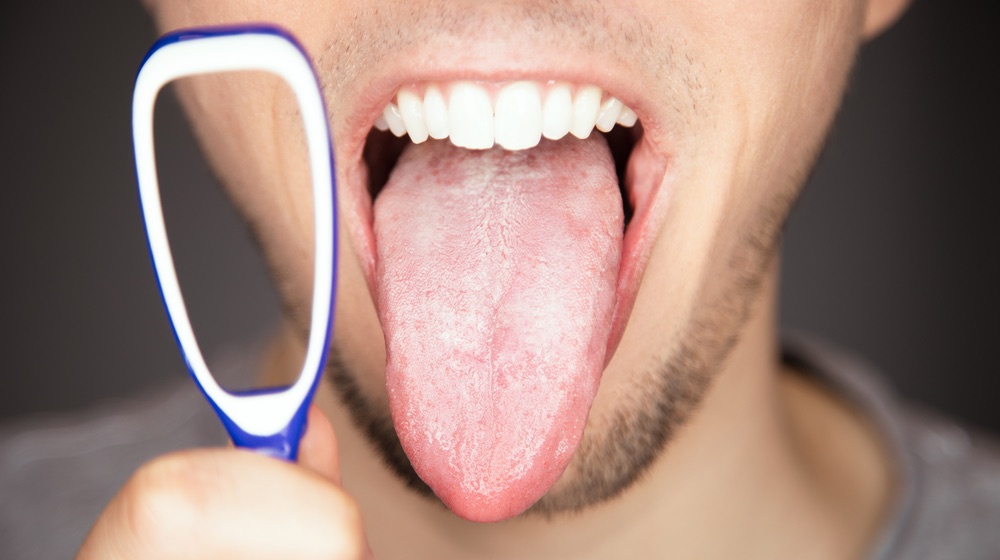Relax your breathing, put your mind at ease. Breathe in, breathe out – these essential oils to help control high blood pressure.
High blood pressure is a marker for cardiovascular risk. It's a silent killer with most of its victims unaware of its existence. Many have turned to essential oils to help get their blood pressure under control.
RELATED: 13 Relaxation Tips to Reduce Stress
Essential Oils for High Blood Pressure | What Science Says So Far
1. Lavender Oil for Calming and Relaxation

Lavender oil may help reduce signs of stress.
A study found that subjects that applied lavender oil on the right side of their chest showed fewer symptoms of stress.
Another study showed that lavender oil may prove to be a quick-acting calming agent. Ten minutes after the subjects inhaled lavender oil, their endocrinological stress markers reduced significantly.
These studies exhibit that whether inhaled or applied topically, lavender oil may prove beneficial to those seeking stress relief. However, some conflicting studies suggest otherwise.
2. Clary Sage Oil for High Blood Pressure

Clary sage oil may put your nerves and muscles at ease.
In a study comparing the anti-stress effects of lavender and clary sage oil with women with urinary incontinence, lavender oil may actually increase the blood pressure. Clary oil, on the other hand, was reported to relax vascular muscles and help lower blood pressure.
A study involving a lavender, clary sage, and rose oil blend exhibited that it may also help relieve menstrual cramps and dysmenorrhea.
Clary sage oil may yet prove to be beneficial for those dealing with high blood pressure. Until then, continue to take treatment to maintain and control hypertension.
3. Lemon Balm Essential Oil for Mood and Cognitive Performance

It may help calm you without disrupting cognitive function, and may even improve it.
Lemon balm oil is commonly used as a mild sedative and sleep aid. A study supporting this found that the oil helped regulate the mood of the subjects. They reported self-ratings of calmness, reduced alertness, and performed arithmetic faster with no difference in accuracy.
A similar study found that not only may it calm your mood, but lemon balm essential oil may also even improve cognitive performance. The researchers suggest that this may make the oil a valuable complement to Alzheimer's treatment.
4. Rose Essential Oil for Stress and Depression

Rose oil may help lessen depression and calm stressed nerves.
A study on the relaxing effects of rose aromatherapy discovered that it may be effective in soothing the nerves and alleviating symptoms of depression. Rose oil was reportedly able to:
- decrease breathing rate
- lower blood oxygen saturation
- reduce systolic blood pressure
- subjects self-rated themselves as more calm, less alert
5. Peppermint Essential Oil to Lower Cortisol Levels

Peppermint oil may help lower endocrinological stress makers – cortisol and chromogranin A (CgA). It may even prove to be a more potent relaxing agent than lavender oil.
A study comparing lavender oil and peppermint oil discovered that inhaling peppermint lowered cortisol levels significantly. However, CgA levels increased significantly. On the other hand, there was no difference in stress markers in subjects that inhaled lavender oil.
6. Ylang Ylang Essential Oil for Stress and Depression Relief

Ylang ylang possesses many benefits, largely exploited in the food industry and the cosmetic industry. It also possesses sedative and relaxing effects, potentially useful for hypertension patients.
A study showed some evidence that ylang ylang may help reduce blood pressure and pulse rate. Consequently, relieving the arousal of the autonomic nervous system.
Another study met the same results, suggesting that ylang ylang may reduce blood pressure and even skin temperature. The subjects also reported that they felt more calm and relaxed.
7. Marjoram Essential Oil for High Blood Pressure

Aromatherapy may prove to be an effective and immediate short-term treatment for high blood pressure.
A study involving a blend of lavender, ylang ylang, marjoram, and neroli oil suggests that essential oils may have a relaxing effect. The blend of oils worked immediately to reduce daytime blood pressure and stress, which may help control hypertension.
8. Bergamot Essential Oil for High Blood Pressure

Bergamot oil may help alleviate stress, widely used in reducing stress and anxiety responses leaving you in a better mood.
A study on clients with hypertension showed that those that inhaled the oil had lower cortisol levels, blood pressure, and subjective stress and anxiety compared to those in the placebo and control group.
The study suggests that aromatherapy may be a useful nursing intervention for hypertension patients.
Another study indicates that bergamot oil may, in addition to lowering cardiovascular risk, improve skin conditions.
9. Jasmine Essential Oil for a Better Mood

A study suggests that the odor of jasmine tea at low dosages has a sedative effect, leaving its inhaler in a calmer mood.
On the other hand, another study found that jasmine is stimulating. While the mood of the subjects was uplifted, this also caused an increase in blood pressure.
With conflicting results, it cannot be said definitively if jasmine may help lower blood pressure. If you're worried about your blood pressure, it's best to consult your doctor than your aromatherapist.
10. Neroli Essential Oil for Anxiety and Sleep Quality

A study involving a blend of lavender, chamomile, and neroli suggests that the oils may help ease anxiety and improve sleep quality. While it could not determine whether the oil could reduce the blood pressure of the study subjects, the results suggest that it may counteract the BP-increasing effects of stress.
Numerous studies have come up with either similar or conflicting results. Due to this, more studies are required before we can conclude the efficacy of aromatherapy.
11. Citronella Essential Oil for High Blood Pressure

Citronella may help freshen your mood and leave its inhaler relaxed and calmer.
A small small study found that when inhaled, citronella may lower blood pressure, heart rate, and respiratory rate. The participants were also reported to subjectively feel calmer and more at ease after inhaling citronella oil.
The Verdict: Essential Oils for High Blood Pressure
While there are more and more studies to prove the efficacy of aromatherapy in blood pressure, none are conclusive and definitive. The FDA has called out to essential oil marketers for mislabeling oils, potentially misleading its buyers. Bear in mind that the FDA has not approved essential oils for the treatment of any health condition.
Evidence is anecdotal at best and trials are lacking blinded studies. While the science isn't clear cut, there's no harm in basking in the fragrance of essential oils to help you ease your nerves.
Aromatherapy is recognized by the US States Board of Nursing and continues to form part of their holistic care. It's a quick, easy, and accessible short-term treatment that may help put their patients at ease.
Bear in mind that oils are not a replacement for doctor-prescribed medicine. Diffuse some oils to complement your treatments. Accompany it with other mindfulness activities that will help calm you – that's the end goal anyway however you get there.
Convinced? Share your stance on essentials oils with us in the comments section below!
UP NEXT:
- 17 Fun & Relaxing Activities For Men Over 50
- 8 Effective Ways to Relieve Stress at Your Desk
- What Is Andropause? | Symptoms, Causes, and Treatments Of Male Menopause
Calling all crafting Health Buffs! If you’ve got the gift of keeping healthy and sharing this knowledge through writing, Click here if you want to write for us.
Please stay connected with us on Facebook, Twitter, Instagram, and Pinterest, and make sure to join our community of healthy living and minded people here.
Trending
Tongue Color | 7 Scary Tongue Color Meanings
Lecithin Benefits and Side Effects: 10 Surprising Truths
Get Updates
SIGN UP FOR OUR NEWSLETTER TODAY

Tongue Color | 7 Scary Tongue Color Meanings

10 Erectile Dysfunction Exercises to Keep Your Manhood Healthy

Related

Tongue Color | 7 Scary Tongue Color Meanings

